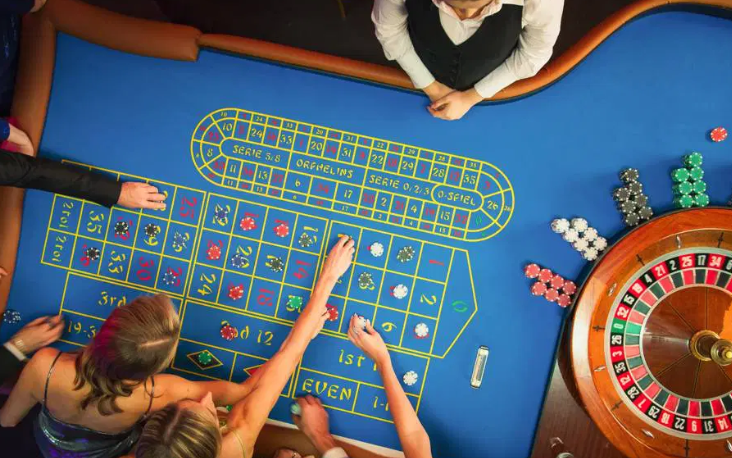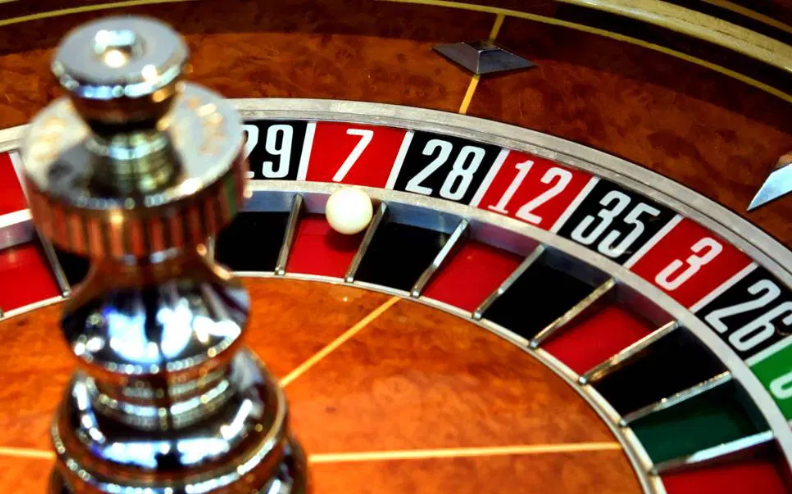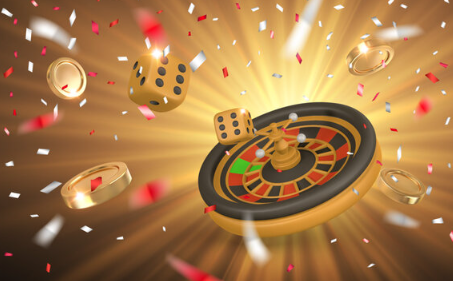Roulette is a staple in any casino, having stood the test of time while continuing to evolve in the modern era.
Its lasting appeal comes from the perfect blend of simplicity and excitement. While the objective of the game is straightforward, the strategies to achieve success are diverse and challenging.
This balance allows new players to quickly join the action while offering enough depth to keep seasoned players engaged for decades. Such a dynamic experience is rare to find.
Just as players continuously refine their betting strategies, casinos are always innovating new ways to present roulette.
The History and Evolution of Roulette
The exact origins of roulette remain uncertain, but history often credits French physicist Blaise Pascal with its early development. In the mid-17th century, Pascal inadvertently created what is considered the first version of the roulette wheel while experimenting with perpetual motion.
From there, roulette evolved through cultural exchange across Europe, eventually spreading to Asia and the Americas over the centuries. Along the way, different variations of the game emerged, with casinos continually introducing new versions to keep the experience fresh and engaging.
Despite its many forms, roulette remains a favorite among players for a variety of reasons. The game captures the essence of what many gamblers seek—excitement, strategy, and the thrill of chance.
Why Players Love Roulette

Roulette hasn’t endured for centuries and spread worldwide by chance. Its lasting appeal comes from its fixed odds, variety of bets, and simple yet engaging rules.
At its core, roulette has a straightforward objective: predict which pocket the ball will land in when the wheel stops spinning. While the concept is simple, the challenge of making accurate predictions keeps players coming back.
Roulette offers a wide range of betting options, from nearly 50/50 chances to long-shot wagers with bigger payouts. The only real learning curve involves understanding these bets and how they may vary between different versions of the game. Once you grasp the basics, adapting to any roulette variation becomes second nature.
Different Types of Roulette
Whether playing online for real money or at a land-based casino, most roulette games fall into one of three main categories: American, European, and French roulette.
European roulette is the most widely played and often considered the standard version.
French roulette uses the same wheel as European roulette but features a unique betting layout with different rules.
American roulette includes an extra green pocket (00), making it a higher-stakes game with slightly lower odds for players.
Despite these differences, the core mechanics of roulette remain consistent across all variations, ensuring a fast-paced and exciting experience.
How to Play Roulette
Learning to play roulette is quick and easy. Simply select a game, decide how much to wager, and place your bet by positioning your chips on the corresponding spot on the betting table. Some wagers, including side bets, are considered the best options for certain strategies.
Once your bets are placed, all that’s left is to watch the wheel spin and see the outcome. You can then choose to place another bet or end your session.
Some games also offer call bets, which don’t have dedicated spaces on the table. To place these, you must inform the croupier before betting closes.
Understanding the relationship between the betting grid and the roulette wheel enhances your gameplay, allowing you to make informed decisions with confidence.
Getting Familiar with the Roulette Wheel and Table Layout

The roulette wheel and table layout consist of a series of numbers and betting options based on those numbers. Most roulette games feature numbers ranging from 0 to 37, though American roulette includes an additional 00 pocket.
In standard roulette, half of the non-zero numbers are red, while the other half are black, with each number corresponding to a pocket on the wheel.
The betting grid displays more than just numbers—it also includes labeled sections for common wagers such as high or low, odd or even, and red or black. If you’re ever unsure about a specific betting option, feel free to ask the croupier for clarification.
Likewise, if you have general questions about the game, the croupier is there to assist. Roulette has clearly defined rules for every situation you may encounter.
Understanding the Rules of Roulette
Roulette rules primarily dictate when bets can be placed and establish proper table etiquette. Typically, you must place your chips or call bets before the croupier announces “no more bets.”
While the time between spins is an opportunity to ask questions, it’s important to be mindful of other players. If you’re completely new to the game or have several questions, researching beforehand can be beneficial.
Respect for the croupier is also key. In addition to basic courtesy, tipping the croupier at the end of your session is a common practice.
Beyond these fundamentals, roulette revolves around betting probabilities and payouts, which can vary depending on the version of the game you’re playing.
Roulette Payouts and Odds

One key concept for roulette players is that roulette payouts and odds are not always the same. The difference comes from the house edge, which ensures the casino maintains a long-term advantage.
Odds refer to the probability of a specific outcome. For instance, in European roulette, a single number bet has a 1 in 37 chance of winning. Payouts, on the other hand, represent what the casino will pay you if your bet wins. A straight-up bet in European roulette typically pays 35 to 1, which is slightly less than the true odds of winning.
This difference—where the potential payout is lower than the true odds—creates the house edge, making long-term profitability a challenge. However, with smart betting and a strategic approach, that challenge isn’t impossible to navigate.
How to Bet on Roulette
With a variety of betting options, new players might think roulette betting is complex, but the basics are straightforward.
A good approach starts with responsible gambling practices, such as:
Setting a session budget before you play.
Determining how much you’ll risk on each bet.
Once you have these limits in place, you can develop your roulette betting strategy. Many players start with well-known betting systems and adjust them based on their experience and risk tolerance.
While the probabilities of different bets remain fixed, the outcomes of individual spins are entirely random. Even with so-called “safe” bets, there are no guarantees.
What Are Your Odds of Winning Roulette?
Your odds of winning depend on which bet(s) you place, as each wager comes with its own probability of success.
It’s important to recognize that winning bets and making a profit are two separate things. You could win multiple bets in a session and still end up with less money than you started with. Conversely, you could experience several losses but walk away with a profit, depending on your betting choices and luck.
The best betting plans account for inevitable losses while maximizing opportunities to win. Additionally, there are online roulette calculator tools that can help you analyze different betting options and improve your strategy.
Research the Best Roulette Strategies

The best roulette strategy is the one that you feel most comfortable with, as no betting system can eliminate the house edge or guarantee consistent profits.
Most well-known strategies focus on either covering a large portion of the table, maximizing wins, or minimizing losses to improve your chances of short-term success. However, even with a solid strategy, losing streaks can and do happen.
As you gain experience, you’ll discover a betting approach that allows you to play with confidence and enjoy the game. In roulette, as in many other things, experience is the best teacher.
How to Improve at Roulette
Reading about roulette and watching others play can provide valuable insights, but the best way to get better at winning roulette is through hands-on experience.
Applying your knowledge in real games helps deepen your understanding of betting patterns, bankroll management, and game flow. While roulette will always be a game of chance, experience allows you to make informed decisions and capitalize on good fortune when it comes your way.
Experience also helps you recognize and avoid common mistakes, such as the gambler’s fallacy—the mistaken belief that a bet is “due” to win simply because it hasn’t hit in a while.
Fortunately, finding a way to practice and refine your skills is easier than ever, whether at a land-based casino or through online roulette games.


